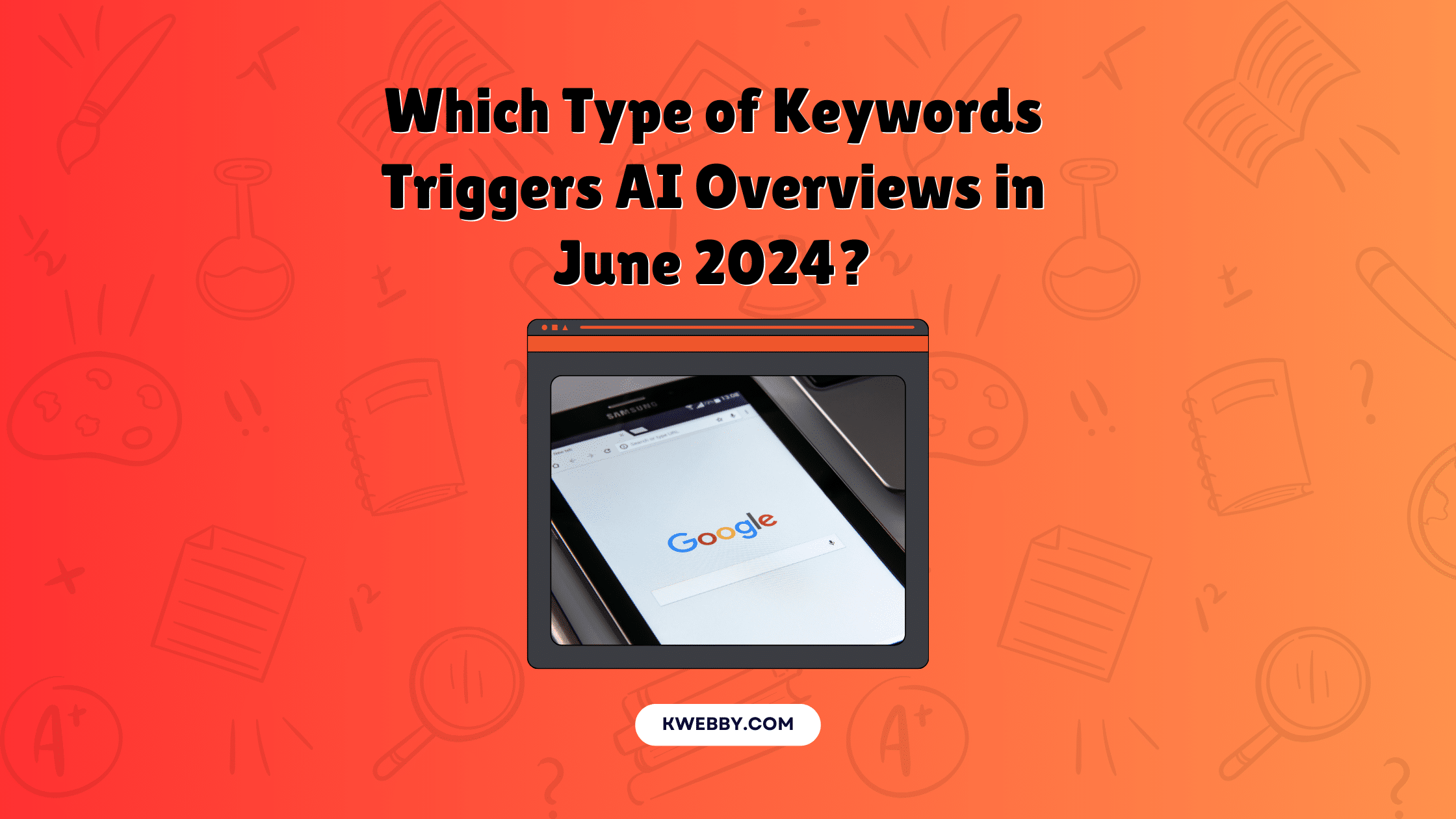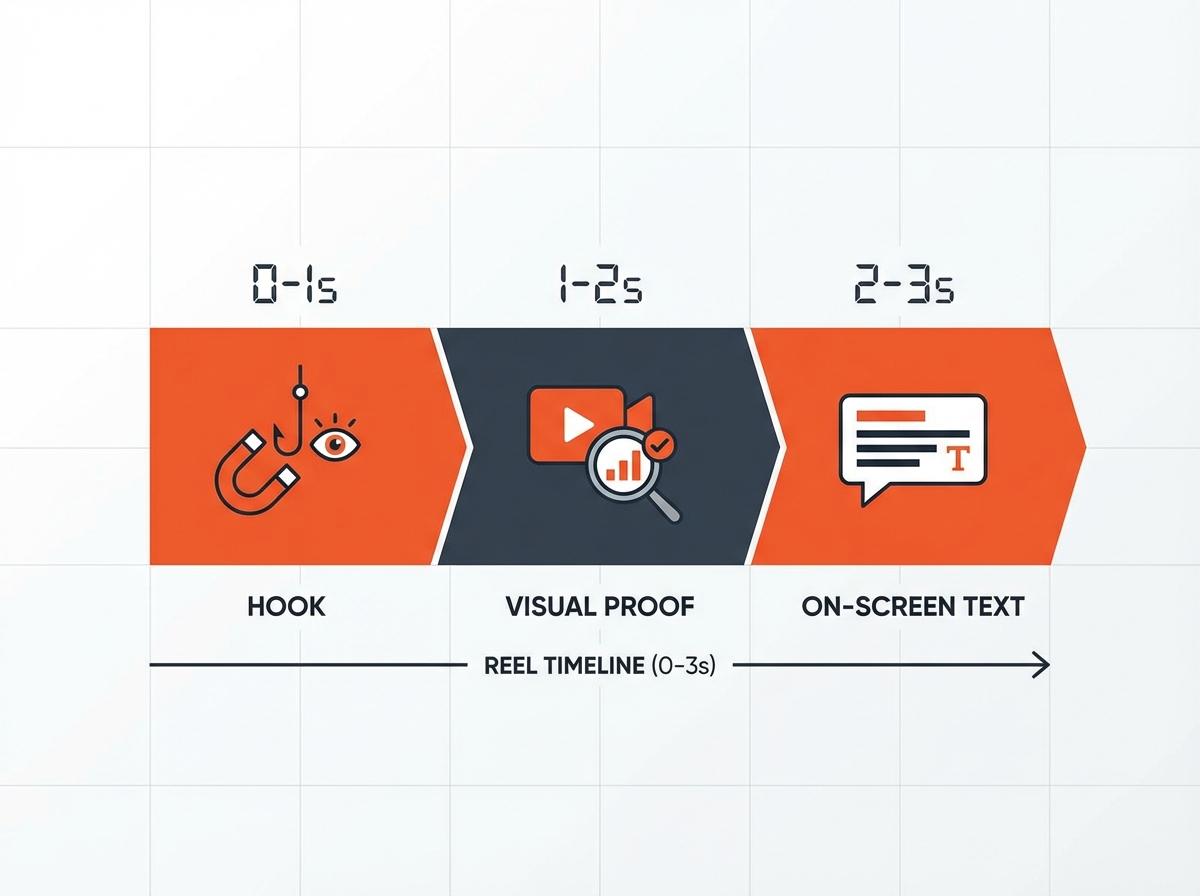Hey there, curious minds!
Have you ever wondered which keywords trigger those fancy AI overviews on Google?
Well, buckle up because new research from BrightEdge has uncovered some jaw-dropping changes in how these overviews are generated.
It turns out that the words that pull up AI features are shifting more swiftly than ever—what was trending in June might be old news by July.
Let’s dive in!
About the Report
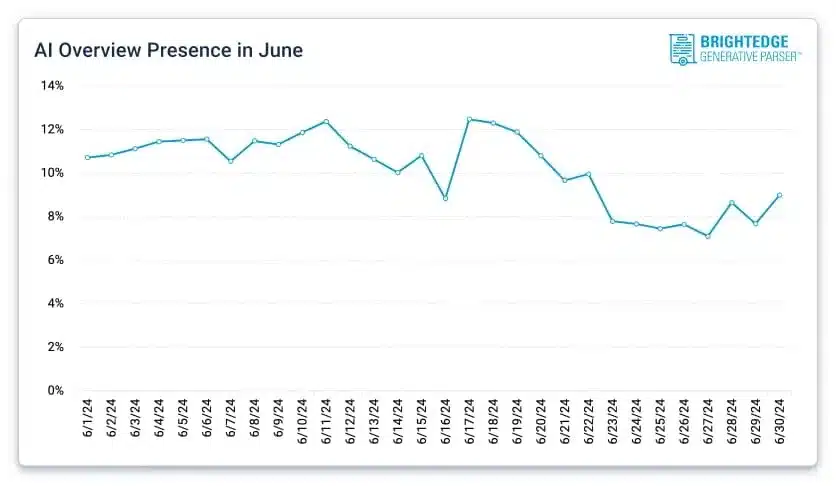
According to the study, keywords containing the word “best” led to a 50% increase in AI Overviews in June. Now, though, Google seems to have dialed that down for product-related phrases in July. Keywords like “What Is” saw a 20% boost, “How to” queries rose by 15%, and phrases starting with “symptoms of” and “treatment” jumped by 12% and 10% respectively.
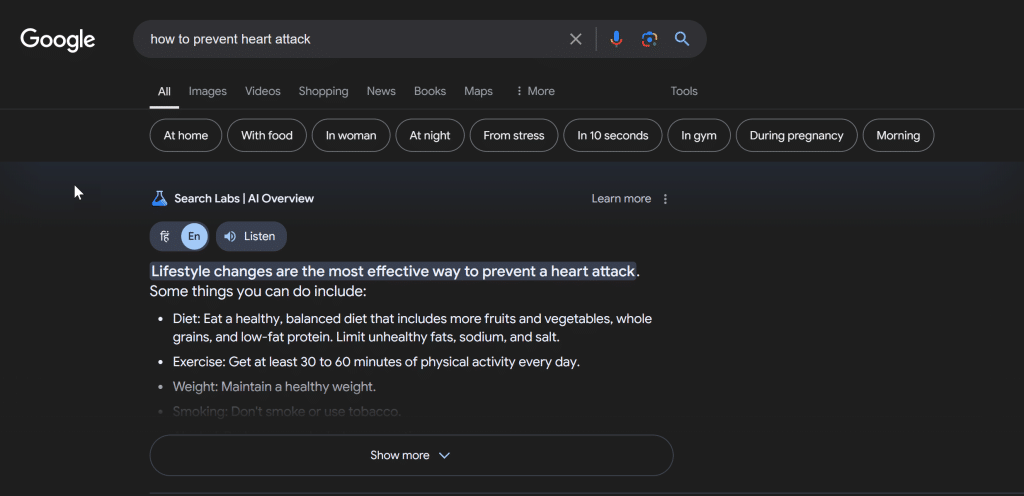
But it’s not just about the numbers. BrightEdge’s in-depth analysis revealed that AI is becoming increasingly crucial in ecommerce, driving a 20% rise in related keywords since early July and a massive 62.6% increase compared to late June. This is reshaping how product searches—especially those offering pros and cons—are displayed, making life easier for us shoppers.
In a nutshell, AI isn’t just a buzzword—it’s revolutionizing how we interact with search engines. So stay tuned, keep those keywords fresh, and adapt with the data. 🌟
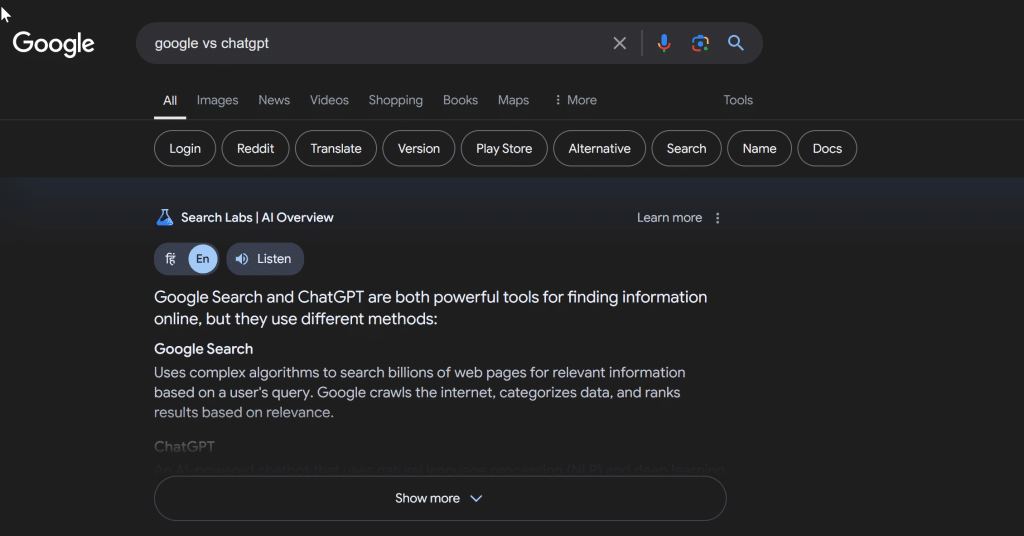
| Increases | Decreases |
|---|---|
| “best” keywords:50% uptick (e.g., “best men’s shoes”, “best watches”)This indicates a rise in product comparisons and review searches. | “Vs” comparisons:20% decrease (e.g., “iPhone vs Samsung”)This decrease might be due to concerns about misinformation. |
| “What is” questions:20% increase (e.g., “what is data analytics”, “what is EDR”, “what is a mutual fund”)This suggests an uptick in informational queries. | Brand-specific queries:15% decrease (e.g., fewer mentions of “Samsung”, “Google”, or “KitchenAid”)This could be due to attempts to avoid brand bias or misrepresentation. |
| “How to” queries:15% increase (e.g., “how does cloud networking work”, “how to prevent kidney failure”)This shows a rise in process-oriented searches. | General product categories:14% decrease (e.g., fewer mentions of “shoes”, “furniture”, “appliances”)Suggests a drop in broad product searches. |
| “Symptoms of” searches:12% increase (e.g., “syphilis symptoms”, “signs of Crohn’s disease”)Indicates a growing interest in identifying health conditions. | Lifestyle-related queries:12% decrease (e.g., fewer mentions of fashion and home decor topics)Indicates a possible shift away from lifestyle content. |
| Treatment-related queries:10% increase (e.g., “shoulder tendonitis treatment”, “hip tendonitis treatment”)Suggests increased interest in medical interventions. | Product model numbers:10% decrease (e.g., fewer mentions of specific model numbers or technical specs)Indicates a drop in specific product detail searches. |
| Seeking general tech support:25% decrease (e.g., “how to reset router”, “troubleshoot printer issues”)Could be due to AI’s limited value add in these technical contexts. | |
| Seeking basic health advice:15% decrease (e.g., “how to lose weight”, “natural remedies for common cold”)Suggests limited utility of AI in general wellness queries. |
Other Key Findings
Let’s break down the latest insights from our research on AI Overviews. Below, I’ll skim through the most critical points into a few digestible chunks for you. Ready? Let’s go!
AI Overview Presence Decline
- AI Overviews’ presence dipped from 11% to 7% of queries in June.
- Before their official mid-May rollout, Google began scaling back AI results.
- This trend continued, with a slight uptick in educational and e-commerce queries from the 17th to the 25th.
Industry-Specific Trends
- Educational Keywords: AI Overviews dropped from 26% to 13% in June. They now focus more on specific skills like business development and prompt engineering.
- Entertainment Keywords: A steep decline from 14% to nearly 0% in AI Overviews. Mostly due to enhanced traditional search results for Golden Age Hollywood celebrities.
E-Commerce and General Queries
- E-Commerce Keywords: AI Overview presence plummeted from 26% to 9%. An uptick occurred between the 17th to the 25th of June.
- Information Overlap Reduction: AI Overviews have reduced their citation overlap with traditional organic results by 3%. This refinement helps avoid redundancy and increases the effectiveness of the AIs’ responses.
Changes in Query Types
- Rise in Financial Warnings: 10% bump in financial warnings for YMYL (Your Money or Your Life) queries, advising users to seek professional advice.
- Comparison Tables and Carousel Reductions: A notable decline in comparison tables and product carousels. Google is likely aiming to avoid misinformation and providing more streamlined search results.
Trusted Sources and Content Adaptation
- Shift Towards Reputable Sources: Increased reliance on official sites like cdc.gov (up by 35%). Significant drop in citations from user-generated content (UGC) platforms like Reddit and Quora.
Summarized Insights for Marketers
- Smarter Use of Space: AI Overviews are becoming more compact, focusing on essential information. This change benefits marketers as AI Overviews won’t crowd out traditional or paid listings.
- Dynamic Source Adaptation: AI Overviews are agile, adapting sources day-to-day based on query patterns.
So there you have it—a snapshot of how AI Overviews are evolving and what it means for us. Exciting times lie ahead in the realm of digital marketing! 🚀
Steps for SEO Pros Out There!
Recommendations for Avoiding AI Overviews
- Use Specific Keywords over Broad Ones:
- Broad keywords like “best” and “how to” are more likely to trigger AI overviews. Instead, use more specific long-tail keywords to avoid AI competition. For example, instead of “best men’s shoes,” go for “top-rated running shoes for men.”
- Target Niche Queries:
- Keywords with niche appeal, such as specific technical terms or localized searches, are less likely to generate AI overviews. Queries like “local organic coffee shops in Seattle” are more targeted and precise.
- Focus on User Intent:
- Understand the intent behind your audience’s searches. Keywords aimed at nuanced user needs or comprehensive guides (e.g., “in-depth guide to cloud networking”) can steer clear of AI overviews.
- Avoid Overused Phrases:
- Phrases that have seen a significant increase in AI engagement, such as “symptoms of” or “treatment for,” should be used sparingly. Experiment with synonymous terms or rephrase your content to engage users more organically.
Actions to Take
- Keyword Variation:
- Use variations of common phrases that aren’t usually targeted by AI. For instance, instead of “how to fix a leaky faucet,” try “leaky faucet repair techniques.”
- Quality Content Creation:
- Develop high-quality, value-driven content that stands out. Make sure to provide unique insights, data, and research that AI summaries may not cover in depth.
- Use Structured Data:
- Implement structured data to help search engines understand your content better, which can lead to rich snippets and reduce chances of AI overviews encroaching on your space.
What to Avoid
- Repetitive High-Frequency Keywords:
- Steer clear from constantly using keywords that are on the rise for AI engagement. Diversify your keyword strategy to keep your content appearing in traditional results.
- Superficial Content:
- Google’s AI can easily summarize superficial content. Offer depth and unique perspectives to ensure your content is highly regarded by traditional algorithms.
Essentials to Implement
- Content Auditing:
- Regularly audit your content to ensure it aligns with current search trends and avoids keywords highly associated with AI overviews.
- Responsive Updates:
- Stay agile and be ready to update content based on performance data and emerging trends. Maintaining a dynamic approach can help in bypassing AI-generated overview overlaps.
By carefully selecting and varying your keyword usage, focusing on quality content creation, and leveraging structured data, you can minimize the risk of AI overviews overshadowing your content on search pages. Stay proactive and keep adapting with the evolving digital landscape.
Final Thought!
By using specific and niche keywords, focusing on unique and in-depth content, and leveraging structured data, SEO professionals can strategically minimize the impact of AI overviews on their search results. Staying updated on trends and agile in content strategies will ensure your content remains relevant and effectively engages your target audience.
Test your knowledge
Take a quick 5-question quiz based on this page.

